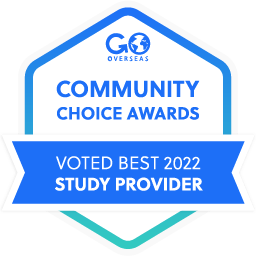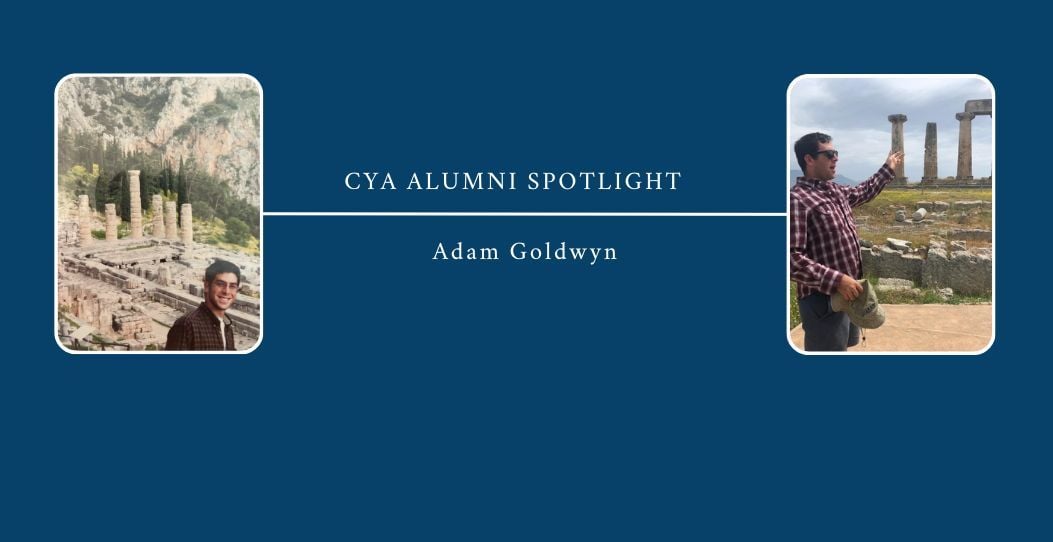
CYA Alumni Spotlight: Dr. Adam Goldwyn’s Journey from Athens to Academia
Since 1962, CYA alumni have gone on to pursue careers expanding across many fields, contributing to the world in unique ways. Many have embarked on fascinating academic careers. In this series of articles, we get in touch with CYA alumni in academia, to recall memories from Greece, discuss their current endeavors, reflect on how their studies in Athens influenced their academic interests, and get a sneak peek at their plans for the future.
Dr. Adam Goldwyn, a CYA alumnus of 2002, currently holds the position of Professor of English at North Dakota State University. With a prolific academic career, Dr. Goldwyn has emerged as a scholar in Byzantine Studies and has published notable books such as “Byzantine Ecocriticism: Women, Nature, and Power in the Medieval Greek Romance” and “Witness Literature in Byzantium: Narrating Slaves, Prisoners, and Refugees.” Recently his interests have turned towards Jewish Studies in Greece and in Holocaust studies more generally, as reflected in his more recent books, “Homer, Humanism, Holocaust: Jewish Responses to the Crisis of Enlightenment During World War II” and a biography Rae Dalven: “The Life of a Greek-Jewish Immigrant”.
Dr. Goldwyn’s connection with Greece began long before CYA. His relationship with Greece began in the heart of Portland, Oregon, with a visit to the iconic Powell’s Books with his aunt, where she bought a book for him called The Glorious Adventure, (1927) by Richard Halliburton, in which he retraces Odysseus’ journey. “This was my first exposure to Greece. I read all of Halliburton’s books and from then on all I wanted to do was travel and write. That was probably the main reason I came to CYA” His decision led to a transformative experience that propelled him towards his future studies. When asked about the connection of his CYA studies to his academic career he reflects:
“Attending CYA was the most important event in my academic career, and I can trace a direct line from the things I learned at CYA to where I am now. I took a class at CYA with Nike Makres about the history of Greece from the end of the Peloponnesian War to the death of Alexander the Great, and we learned about the Theban hegemony under Epaminondas and the settling and founding of ancient Messene as a democratic utopia. I went to CYA in January 2002, just a few months after the 9/11 attacks, and by the time I returned, it was more or less clear that the US would soon invade Iraq. As a result, there was a lot of debate about the role of democratic armies and nation-building, and this aspect of Epaminondas’ career became my undergraduate thesis. This, in turn, led me to become interested in Thucydides, so I pursued an MA in ancient history at University College London, where I worked with a professor named Simon Hornblower, who introduced me to the idea that historiography could be understood using the tools of literary analysis, in particular narratology. So I abandoned history and got my PhD in Comparative Literature, which led me out of ancient Greek and into medieval and modern Greek and into my current job and research interests, in which I still treat historical texts from a literary perspective.”
Thinking about important elements of his education at CYA, Goldwyn talks about CYA’s emphasis on on-site visits as something that allowed him to observe the continuities of Greek history and culture. He focuses on the example of Monastiraki square “[I saw it] as a singular space rather than as separable sequences of discrete periods. As you can see in Monastiraki, all of these periods exist [Classical, Roman, Byzantine, Ottoman, and modern], in a way, simultaneously, and that is something I try to bring out in my research. I have written, for instance, about not just Homer and his poems, but also their many afterlives, whether in the medieval period, as in my translations of the twelfth-century grammarian John Tzetzes’ Allegories of the Iliad and Allegories of the Odyssey, in the early modern period as editor of The Trojan Wars and the Making of the Modern World, or in more modern periods, whether in thinking about how they were seen as liberatory poems by Albanian writers under Communism, or, as in my most recent book, “Homer, Humanism, Holocaust: Jewish Responses to the Crisis of Enlightenment During World War II”, about how Jewish survivors of the Nazi genocide saw in the Homeric epics a parallel narrative of their own—the Iliad and the Odyssey as narratives of the Greek genocide of the Trojans.
Completing a full circle, Dr. Goldwyn returned to CYA as an instructor in 2023, and he was able to share with his students much of what he had learned about the Byzantine world over the two decades he first arrived in Athens. “Teaching at CYA this summer and taking my students to Monastiraki Square was a kind of homecoming, bringing my academic journey from student to professor full circle.”
But for Dr. Goldwyn, Greece’s allure extends beyond its monuments.“what continually brings me back to Greece is the people I have met along the way.” Inspired by his role model, the Greek-Jewish translator Rae Dalven, he has gone on to interview and translate some of the most exciting voices in twenty-first-century Greek poetry, including Zissis Ainalis, Danae Sioziou, Eleni Kefala, and Iossif Ventura. On the subject of his continuous relationship with the people and culture of Greece he reflects “I often tell my students that I am not only teaching the student they are now, but also the person they will be in ten or twenty years, and I think it was my experience at CYA that gave me this perspective.”
Fascinating in its own right, Adam Goldwyn’s journey stands as a testament to the transformative power of international education, shaping not only a career but a lifelong connection with the cultural and historical landscapes that continue to inspire his scholarly exploration. “I see it now as the defining experience of my undergraduate career and one that, unexpectedly, gave me an enduring love of Greek history, literature, and culture that laid the foundation for a meaningful career.”
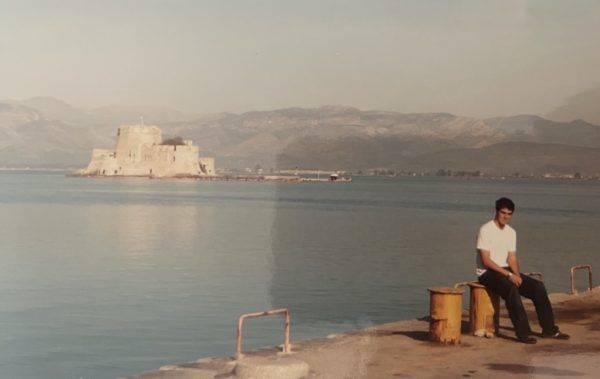
Goldwyn as a young CYA Student, in Nauplio.
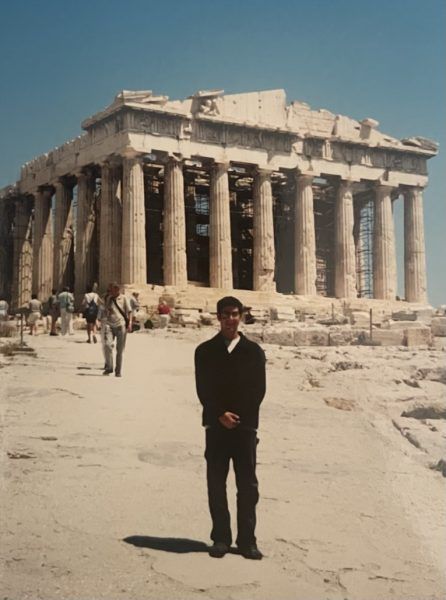
Goldwyn as a young CYA student, in front of the Parthenon
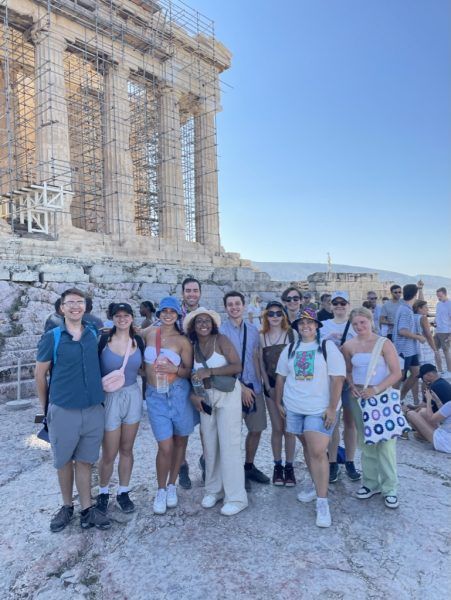
Goldwyn’s CYA class (Summer ’23) in front of the Parthenon.




